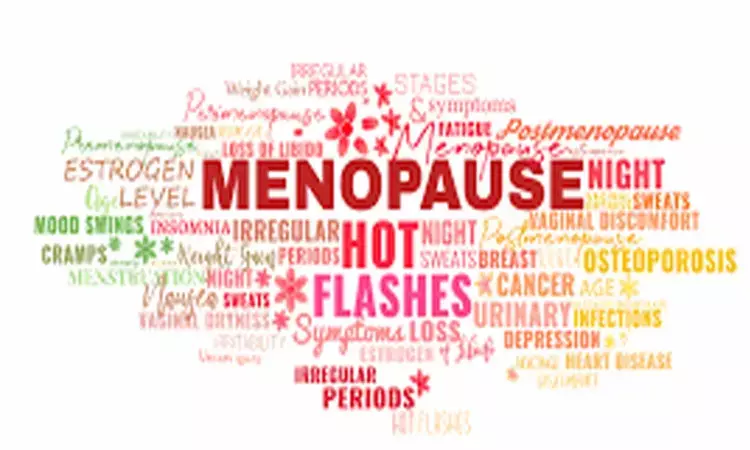- Home
- Medical news & Guidelines
- Anesthesiology
- Cardiology and CTVS
- Critical Care
- Dentistry
- Dermatology
- Diabetes and Endocrinology
- ENT
- Gastroenterology
- Medicine
- Nephrology
- Neurology
- Obstretics-Gynaecology
- Oncology
- Ophthalmology
- Orthopaedics
- Pediatrics-Neonatology
- Psychiatry
- Pulmonology
- Radiology
- Surgery
- Urology
- Laboratory Medicine
- Diet
- Nursing
- Paramedical
- Physiotherapy
- Health news
- Fact Check
- Bone Health Fact Check
- Brain Health Fact Check
- Cancer Related Fact Check
- Child Care Fact Check
- Dental and oral health fact check
- Diabetes and metabolic health fact check
- Diet and Nutrition Fact Check
- Eye and ENT Care Fact Check
- Fitness fact check
- Gut health fact check
- Heart health fact check
- Kidney health fact check
- Medical education fact check
- Men's health fact check
- Respiratory fact check
- Skin and hair care fact check
- Vaccine and Immunization fact check
- Women's health fact check
- AYUSH
- State News
- Andaman and Nicobar Islands
- Andhra Pradesh
- Arunachal Pradesh
- Assam
- Bihar
- Chandigarh
- Chattisgarh
- Dadra and Nagar Haveli
- Daman and Diu
- Delhi
- Goa
- Gujarat
- Haryana
- Himachal Pradesh
- Jammu & Kashmir
- Jharkhand
- Karnataka
- Kerala
- Ladakh
- Lakshadweep
- Madhya Pradesh
- Maharashtra
- Manipur
- Meghalaya
- Mizoram
- Nagaland
- Odisha
- Puducherry
- Punjab
- Rajasthan
- Sikkim
- Tamil Nadu
- Telangana
- Tripura
- Uttar Pradesh
- Uttrakhand
- West Bengal
- Medical Education
- Industry
Certain medicines linked to unhealthy weight gain in postmenopausal women: Study

Ohio --Researchers have found in a new study that the use of antidepressants, beta-blockers, and insulin during the menopause transition is partially to blame for such unhealthy weight gain. Therefore healthcare providers should be more vigilant when prescribing various medications to postmenopausal women.
The results of the study have been published in Menopause, the journal of The North American Menopause Society (NAMS).
Researchers sought to quantify the magnitude of the association between weight-promoting medications and a 3-year weight change in postmenopausal women in the new study based on data collected from women who participated in the Women's Health Initiative.
Abdominal weight gain, which is common during the postmenopause period, is associated with an array of health problems, including diabetes and heart disease.Many medications prescribed for hypertension, diabetes, depression, and/or other mental health problems are associated with unintentional weight gain. Unfortunately, postmenopausal women, who already have a high prevalence of being overweight or obese, are more likely to be treated with weight-promoting medications for these various health problems at the time of the menopause transition.
The study measured body mass index (BMI) and waist circumference at baseline and at 3 years and cross-checked the results with an inventory of prescribed medicines, including antidepressants, beta-blockers, insulin, and/or glucocorticosteroids. On the basis of these results, the researchers concluded that taking at least one weight-promoting medication was associated with a greater increase in BMI and waist circumference compared with women not on these medications. Both of these measurements increased with the number of weight-promoting drugs prescribed. Those who took either antidepressants or insulin, or a combination of antidepressants and beta-blockers, were most likely to have a significant increase in BMI compared with nonusers. Racial and ethnic minority women--groups with a higher weight at baseline--also were more susceptible to weight gain associated with the use of prescription medications.
In response to the study's results, the researchers suggest a need for healthcare providers to be more vigilant when prescribing various medications to postmenopausal women. Specifically, healthcare providers need to determine whether various medications are absolutely necessary, whether alternative options are available, and whether the lowest dose is being prescribed to provide the desired results.
Study results appear in the article "The association between weight-promoting medication use and weight gain in postmenopausal women: findings from the Women's Health Initiative."
"This study highlights the significant adverse health effects of obesity and the association between use of weight-promoting medications such as antidepressants, antihypertensives, and insulin and weight gain in midlife women. In addition to ensuring that these weight-promoting medications are used judiciously and in the lowest doses needed to achieve the desired outcomes, lifestyle strategies to mitigate these adverse effects, such as diet quality, physical activity level, and sleep quality and duration, should be emphasized," says Dr. Stephanie Faubion, NAMS medical director.
For further reference log on to:
Dr Kamal Kant Kohli-MBBS, DTCD- a chest specialist with more than 30 years of practice and a flair for writing clinical articles, Dr Kamal Kant Kohli joined Medical Dialogues as a Chief Editor of Medical News. Besides writing articles, as an editor, he proofreads and verifies all the medical content published on Medical Dialogues including those coming from journals, studies,medical conferences,guidelines etc. Email: drkohli@medicaldialogues.in. Contact no. 011-43720751


